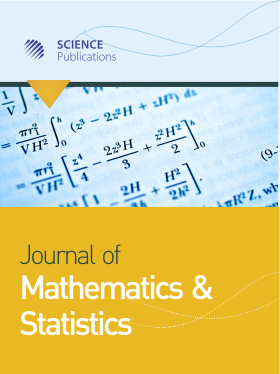Optimal Control of a Malaria Transmission Model with Saturated Incidence
- 1 Department of Mathematics, University of Cape Coast, Cape Coast, Ghana
Abstract
We present a vector-host deterministic model for the transmission and control of malaria, using prevention and treatment as controls. A novel addition to our model is a new prevention function that highlights the role of prevention in reducing vector populations; an essential arsenal in the fight against malaria. Another innovation is the use of a novel treatment function, which reflects the fact that, at any given time, only a proportion of the infected population has access to proper treatment; increasing this proportion is key to the effective control of malaria. Optimal control methods are used to determine a proper combination of prevention and treatment, necessary to effectively reduce malaria transmission. Simulations of the solutions of the optimality system, using varying parameter values, show that malaria infections can be drastically reduced and possibly eradicated, if contiguous communities implement appropriate prevention and treatment strategies.
DOI: https://doi.org/10.3844/jmssp.2024.18.36

- 4,158 Views
- 2,357 Downloads
- 1 Citations
Download
Keywords
- Malaria Transmission Model
- Saturated Incidence
- Optimal Control Formulation
- Pontryagin's Maximum Principle
- Forward-Backward Sweep Method
